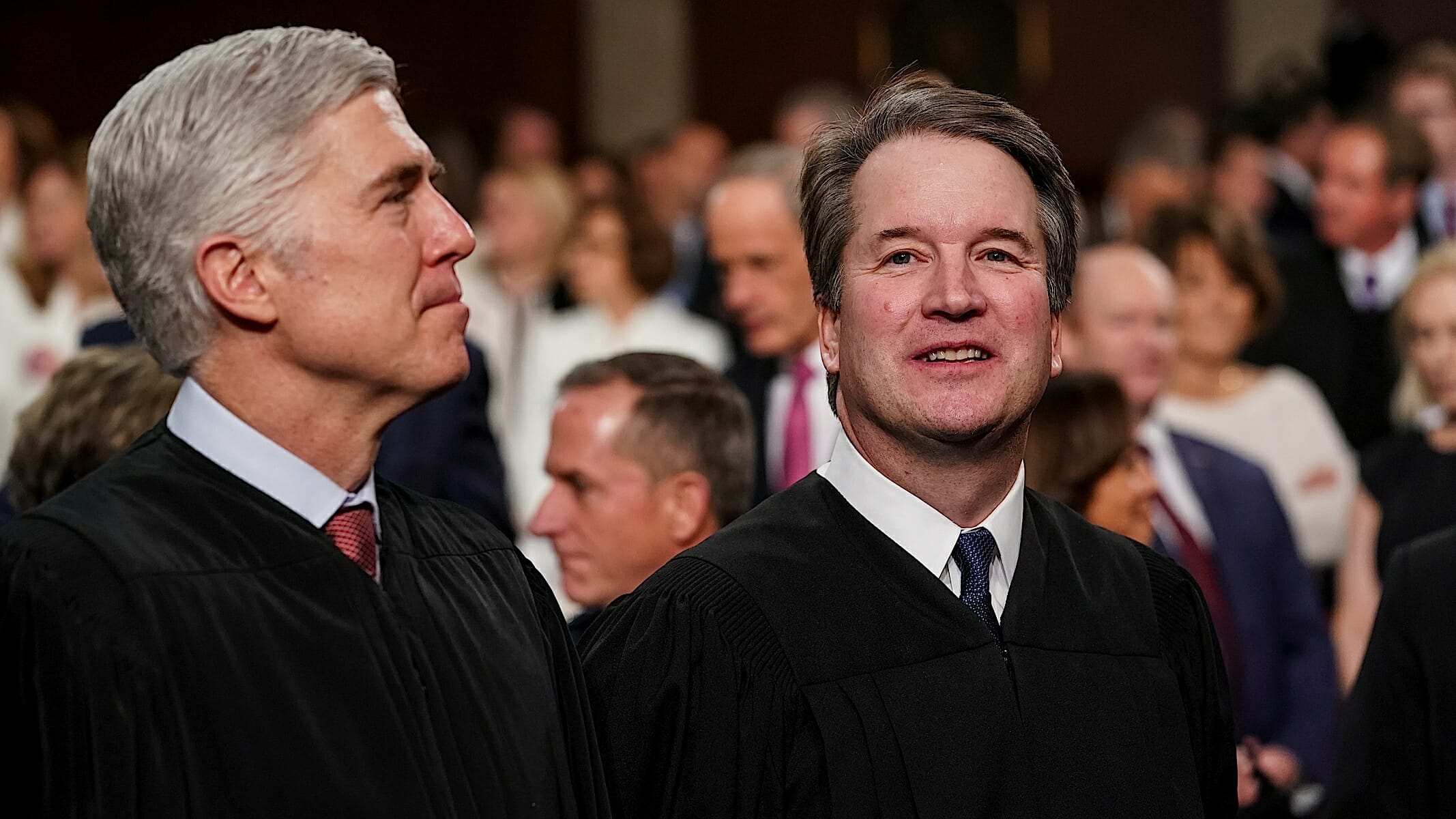Is the Supreme Court Anything More Than a Partisan Joke? With Two Cases, We’re About to Find Out
Photo courtesy of Getty Politics Features Supreme Court
Two enormous cases remain in the final week of the Supreme Court’s current term, and the way they’re adjudicated will not only decide the fate of elections in America for the foreseeable future, but will tell us all we need to know about the Court itself. As in, whether it’s truly an independent judicial body that can make even a slight claim at “fairness,” or whether it’s just an extension of our legislatures—a fundamentally partisan body that essentially just makes its decisions in line with Republican orthodoxy because the court’s conservatives hold a 5-4 majority.
The first case is all about whether it’s legal to put a “citizenship” question on the census, as Republicans are attempting to do. Per the AP:
In the census case, the Census Bureau’s own experts say that Hispanics and other immigrants are likely to be undercounted if the census questionnaire asks everyone about their citizenship status. The last time the question appeared on the once-a-decade census was in 1950, and even then it wasn’t asked of everyone.
Democratic-led states and cities, and civil rights groups challenging the citizenship case, have argued that the question would take power away from cities and other places with large immigrant populations and reward less populated rural areas. They have more recently pointed to newly discovered evidence on the computer files of a now-dead Republican consultant that they say shows the citizenship question is part of a broader plan to increase Republican power.
The story of that consultant, Thomas B. Hofeller, is fascinating. The Times called him the “Michelangelo of gerrymandering,” and he was the brains behind the GOP’s gerrymandering tactics that helped lead them to total control of many state legislatures. But he was also a key player in adding the citizenship to the census, as his daughter found out by looking at his hard drive after he died in the summer of 2018. Here’s what she discovered:
Files on those drives showed that he wrote a study in 2015 concluding that adding a citizenship question to the census would allow Republicans to draft even more extreme gerrymandered maps to stymie Democrats. And months after urging President Trump’s transition team to tack the question onto the census, he wrote the key portion of a draft Justice Department letter claiming the question was needed to enforce the 1965 Voting Rights Act — the rationale the administration later used to justify its decision.
In other words, there is documented evidence showing that the purpose of the question is to help Republicans win elections by depressing the response of minorities, and then they lied and said it was about the Voting Rights Act. Not that the end game wasn’t already obvious, of course, but there’s a big difference between suspecting someone’s intentions and having actual proof of it. This is a blatant attempt to scare Hispanics and other noncitizens into avoiding the census at all costs, since many will fear—not without reason—that the answers could be used against them in future deportation actions.
Even with that evidence in hand, the Supreme Court still appears likely to rule in favor of Trump’s Justice Department, which would be a clear indication that no matter the rationale they use in their decision, the Court will give Trump and future presidents the green light to purposefully use the census to gerrymander, since the census determines how many House seats each state receives.
Speaking of gerrymandering, the second set of cases in question involves a more direct use of the practice. The Court will be considering a case from Maryland and a case from North Carolina in which federal courts already rules that Republican-drawn districts “violated those voters’ constitutional rights.” The AP, again:
…lower courts found that Republicans in North Carolina and Democrats in Maryland went too far in drawing congressional districts to benefit their party at the expense of the other party’s voters.
The Supreme Court has never invalidated districts on partisan grounds, but the court has kept the door open to these claims. The court has struck down districts predominantly based on race.
What’s interesting here is not just that the Court could invalidate the lower court decisions about these specific acts of gerrymandering, but could, in fact, close the door to any federal lawsuit concerning partisan gerrymandering. As a citizen of North Carolina, I can tell you that the districts here are comically, absurdly unfair, and a great measure of that unfairness is the fact that in the 2018 midterms, the popular vote was almost a dead heat, with Republicans receiving 1.85 million votes to the Democrats’ 1.78 million. But how did the breakdown of House seats go? Republicans won 10, Democrats won 3. Now that’s some good gerrymandering!
The situation is similar in Maryland, except that in their case, it was Democrats re-drawing districts in a way that made it impossible for Republicans to win. But in both cases, the Supreme Court’s conservative justices seemed reluctant to invalidate any districts, likely because they know that in the vast majority of American examples, the results benefit Republicans.
We’ll know this week how these cases shake out, and the results will echo across the country—if it’s okay for Trump and the Justice Department to use a fear tactic to gerrymander the House, and if states can gerrymander their own districts without fear of federal lawsuits, then we’ll have taken one more step toward making fair elections impossible, and the Supreme Court will be revealed as a partisan farce.